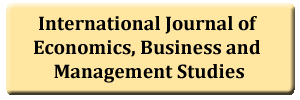Can SMS reminders improve utilization of malaria prevention strategies among pregnant women in Busia County?
DOI:
https://doi.org/10.55284/gjss.v10i2.1279Keywords:
Community health workers; Insecticide-treated nets, Intermittent preventive treatment in pregnancy,Malaria prevention, Maternal health, Pregnant women, SMS reminders.Abstract
Despite extensive efforts to promote Insecticide-Treated Nets (ITNs) and Intermittent Preventive Treatment in Pregnancy (IPTp), utilization rates among pregnant women remain suboptimal. Leveraging Kenya's extensive mobile networks, this study evaluated whether SMS text-message reminders could improve and sustain the use of these malaria prevention strategies. A parallel-group randomized trial was conducted from September 2023 to February 2024, enrolling 156 pregnant women aged 15–49 years from Busia County, Kenya. Participants were block randomized into an intervention group, receiving SMS reminders on ITN and IPTp use for 5 months, or a control group with no text messages. The primary outcomes were ITN utilization and adherence to IPTp dosing as per Kenyan guidelines. McNemar’s test assessed changes in paired proportions pre- and post-intervention. At baseline, ITN utilization was high, with 95% in the control and 88% in the intervention group, with no significant changes observed post-intervention. However, IPTp adherence significantly increased in both groups (control: χ² = 37.1, p < 0.001; intervention: χ² = 45.0, p < 0.001). High ITN use at baseline, likely due to robust community health worker (CHW) outreach, may have limited the SMS intervention’s impact on ITN utilization. However, significant increases in IPTp adherence were observed in both groups, suggesting that CHW outreach was effective, with SMS reminders possibly reinforcing IPTp adherence in the intervention group. These findings highlight the potential of combining CHW outreach with SMS reminders to enhance malaria prevention, particularly for IPTp adherence, in high-risk areas.





